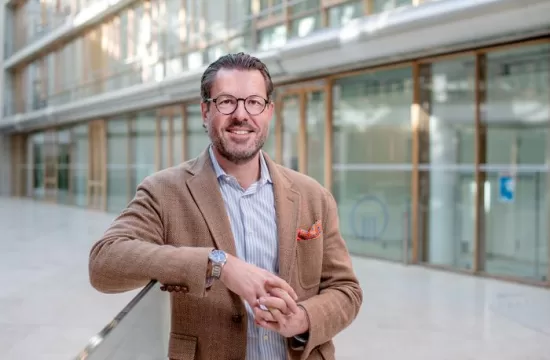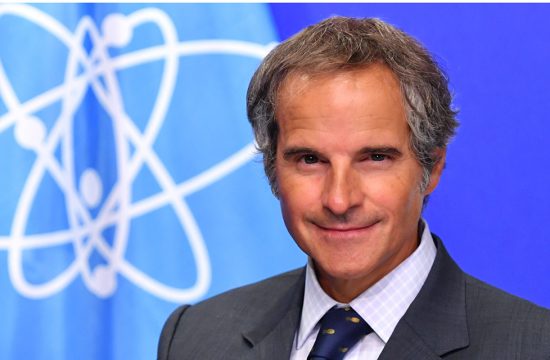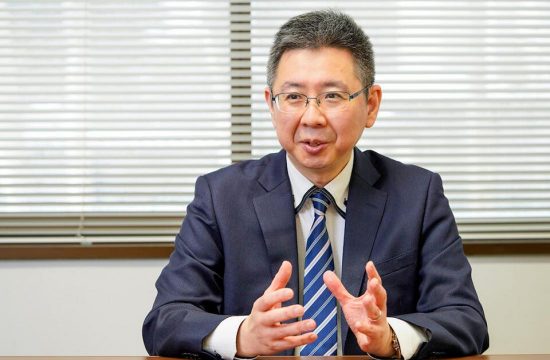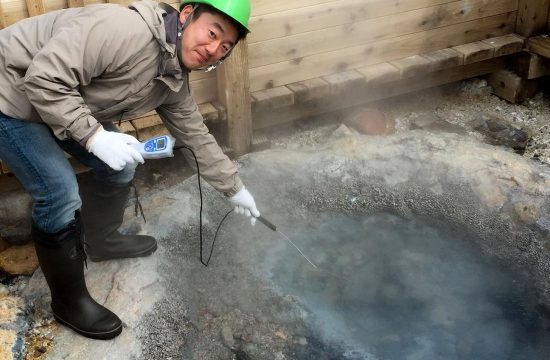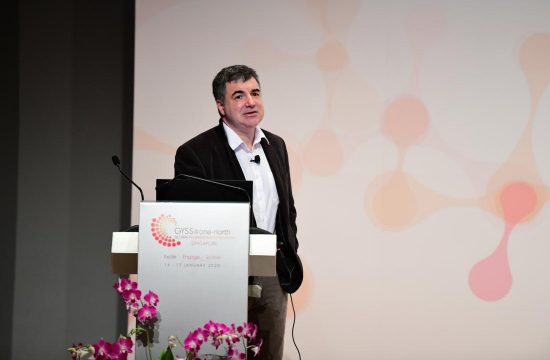Frank D. Blum is one of the Scientists at Oklahoma State University (OSU), Stillwater, USA. He had done a B.S. in Chemistry at Eastern Illinois University, Charleston, 1976, M.S. in Physical Chemistry, Eastern Illinois University, Charleston, IL, 1977; and a Ph.D. in Physical Chemistry at the University of Minnesota, Minneapolis, MN, 1981. He is a polymer, physical, colloid, and materials chemistry specialist and interested in research of dynamics of polymers and surface active species at interfaces, polymer composites and nanocomposites, polymer-solvent interactions and dynamics, polymer characterization, structure and dynamics in surfactant systems, friction materials, and NMR spectroscopy, he mentioned to us. He started his career as a teaching assistant at Eastern Illinois University, Charleston, IL, 1976-1977; a research and teaching assistant at University of Minnesota, Minneapolis, MN, 1977-1981, Assistant Professor of Chemistry, Drexel University, Philadelphia, PA, 1981-1986, Associate Profssor of Chemitry, the University of of Missouri-Rolla, Rolla,, Rolla MO, 1986-1990. Visiting Scientist, IBM Almaden Research Center, San Jose, CA, 1992, Senior Research Investigator, Materials Research Center, 1989-2010 (UMR), Research Investigator, 1986-89 (UMR), Adjunct Professor, Department of Materials Science and Engineering, 06-2009 (UMR). Professor of Chemistry, University of Missouri-Rolla, Rolla, MO, 1990-1993; Curators’ Professor of Chemistry, Missouri University of Science and Technology, Rolla, MO, 1994-2009; Visiting Professor, Physical Chemistry 1, Lund University, Lund, Sweden. Harrison I. Bartlett Chair, Professor and Chair of Chemistry, OSU, 1/10. Regents’ Professor, OSU, 7/11, as he further added to us. He achieved various awards from the American Chemical Society (ACS), Research Scholar Award, 1983-84 (Drexel U.). Alcoa Foundation, Scientific Support Program Award, 1992. Exxon Education Foundation Award, 1994, 1997, Distinguished Alumni Award, Eastern Illinois University, 2001; Fellow of the American Chemical Society, 8/09.Harrison I. Bartlett Chair, OSU, 1/10, and Regents’ Professorship, OSU, 7/11. He visited Nepal last month to attend the Kathmandu Symposium of Advanced Materials (KaSAM) on May 9-12, meanwhile, the Managing Director of RevoScience, Mr.Laxman Dangol, set an exclusive interview with him
Why did you come to Nepal?
My visit to Nepal has two reasons; one is for science, for which I am highly interested, and the other is to learn about the university from which we get students for our graduate school in the chemistry department. So, my main purpose was to visit some of the professors and the university over here. So I could have a deep understanding of where students come from. I also want to thank the professor and their respective department for being willing to send their students to our university for the PhD Program.
What lesson did you learn from this conference?
Well. I learned two different kinds of lessons. One kind of lesson I learned is somewhat about science that has been done. In some of the sciences, I learned that somehow, other people might have looked at the same kind of problem from a different point of view because there are experts from Nepal, Germany, India, Singapore, France, and only a couple from the USA. But I learned how some different people look at the problem. The other thing learned about the people, a little bit culture of Nepal, which is very useful because when we try to understand people and work with them, it is useful to understand their situation, so we can be more effective in working with them.
In your view, what type of research activities should we prefer in Nepal?
It is difficult for me to say, because on one hand, Nepalese scientists are doing a very good job, trying to use many of the natural products that are abundant in Nepal. To make some kind of product, to use some of the fibers like Bamboo in a symposium today, all about bamboo, which I think, Scientist Trephine, to very useful. But I think also, Nepalese scientist also wants to be involved in research. Also, want to do a research program where they are working in an area where other people are in the world at the fore science. I think the difficulty is that Nepal doesn’t have so much money for science. I think Nepal has to find small areas where it can have great equipment and instrumentation to do scientific studies. I know that it is not possible to do that and bring everything for every kind of discipline, but I think maybe they need to break down a couple of areas, and then provide money to have some really good faculty for more infrastructure.
After completing this seminar, I will go to visit Tribhuvan University and Kathmandu University then I will speak about what kind of things are available. My own area is polymer, and I know that would be a good area, I think. Nepal Polymer Institute is starting, and there are a number of people who are working in polymers, both from natural polymers like bamboo, to synthetic polymers. So that’s where natural polymers are used in everyday life, and I think that’s where scientists can have an impact worldwide.
What kind of things should you expect from Tribhuvan University?
I am sure what I expect to see lot of friendly students who have a good teacher, they will be pretty smart, I also think that.
How can you say those Nepalese teachers are so good?
Oh! “Because you have good students.” In the USA, in my institution, some of the Nepalese students are very smart. So, I think, they must have good teachers.
What kinds of things are going to be proposed at T. U.?
Well. I’m not sure, but maybe they might be interested in synthesis to making polymers and they might be testing them at our University.
Recently, I met your PhD students. What kind of research activities were they doing at Oklahoma State University?
Well. I’ve two Nepali students in my group doing PhD under me. One of the students is Balika Khatiwada, gave a talk about the “Heat Capacity Composing Polymer Material” today, and she is doing a wonderful job. Measuring the heat capacity of composing material helps to understand what can learn us about polymers when they are observed on the solid substance.
In more than 30 years of history, what kind of thing would you achieve?
You mean, big discovery!
Well! In many cases, doing science is just like building a house, putting a brick at a time. So in our cases, the work we do is just like putting some bricks for the house, but I think some of the things we have been able to determine how far the effect the surfaces go, and how far attachment to the surface of the facts affects the properties of Polymers. And for something which can say that, it may be only a few nanometers from the surface where there is an effect, but other, more like a hundred nanometers, and it depends also on the kind of experiments that we do. And what we are able to do, I don’t think people have been able to do. We have been able to look at the interface in the polymer composite, not like fiberglass, where you can say what polymer glass is different than bulk polymer.
Are you a Scientist or Researcher? How can you differentiate?
Hmm…, I’m a scientist. I think scientists are people who are driven by the need to understand how things work. I don’t think that an inventor is necessarily a scientist; one can do both invention and scientific work. But in my experiments, what makes me a scientist is that I am very awesome and have a strong desire to understand how things work. It may be a scientific system. It may be how people build a road, it may be how big gears work in some kind of machine, or it may be why composite materials are strong, but the really important thing that distinguishes scientists is a real wanting the understand how it works.
I think you invest a lot of time in polymer science. What kinds of polymers are you going to design? Well. There are a number of people who are working on things like Smart Cooling, maybe, you can wear a shirt that might be a battery recharger, maybe the clothes are cleaned themselves, maybe you can put clothing on something, that clothing will prevent ice from forming machine. There are a lot of applications like that for polymers. Or maybe we will make a lightweight polymer composite that will be stronger and tougher than available so far.
How would you choose Nepalese students for a PhD?
Mixed everything. Test scores are important, especially for TOEFL in English, because we like them to teach too, and then later, to the faculty member, their work is important. That’s overall.
For me, personally, when students worked with me, I liked to work with the students who were smart, creative, hard-working, and independent. So that thing I prefer. Sometimes I know from the class, then sometimes, I just work too. A successful student will have a good mixture of advisor and sometimes will be given a small project, see how they do?
In your view, Science is knowledge or labor.
Oh! It is a combination of both.
How many international seminars have you attended before?
I don’t know how many talks I have given, but I don’t know either myself. For my students and we gave more than 250 talks at the Scientific meetings.
How many scientific publications have you published so far? Which one is the best and valuable?
I don’t know. I am not worried about that so much. It was one of my papers, published in the Scientific Journal of Chemical Society, titled Study on Interesting and Composite Materials, which is one I guess the papers I like the best. I’m not sure how much others have read that is not my interest either.
Through RevoScience, would you like to say something to Nepalese Students and people?
Well, I think sometimes many people look around the world, and they see that it looks like I just change money or work on tasks or go to a business where I can make a lot of money, but well best to focus on making new kinds of things. So, to advance the country, make a less advanced country grow from less advanced to a more advanced country. It needs to be based on scientific equipment for advancement in education. So my suggestion: to the Nepalese Students, if they are interested in science, that science is a great thing to study, and that hopefully the Nepalese Government and Nepalese people will decide that science and engineering are the way to prosperity.


